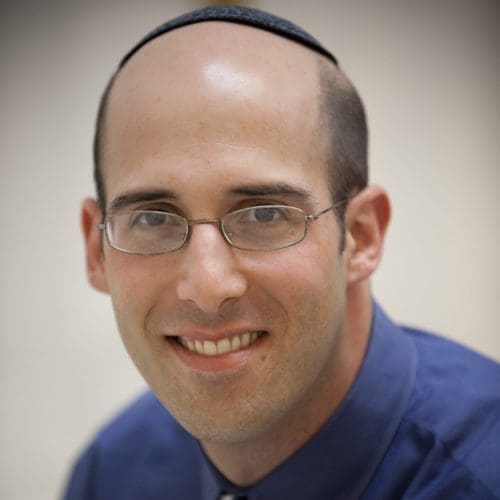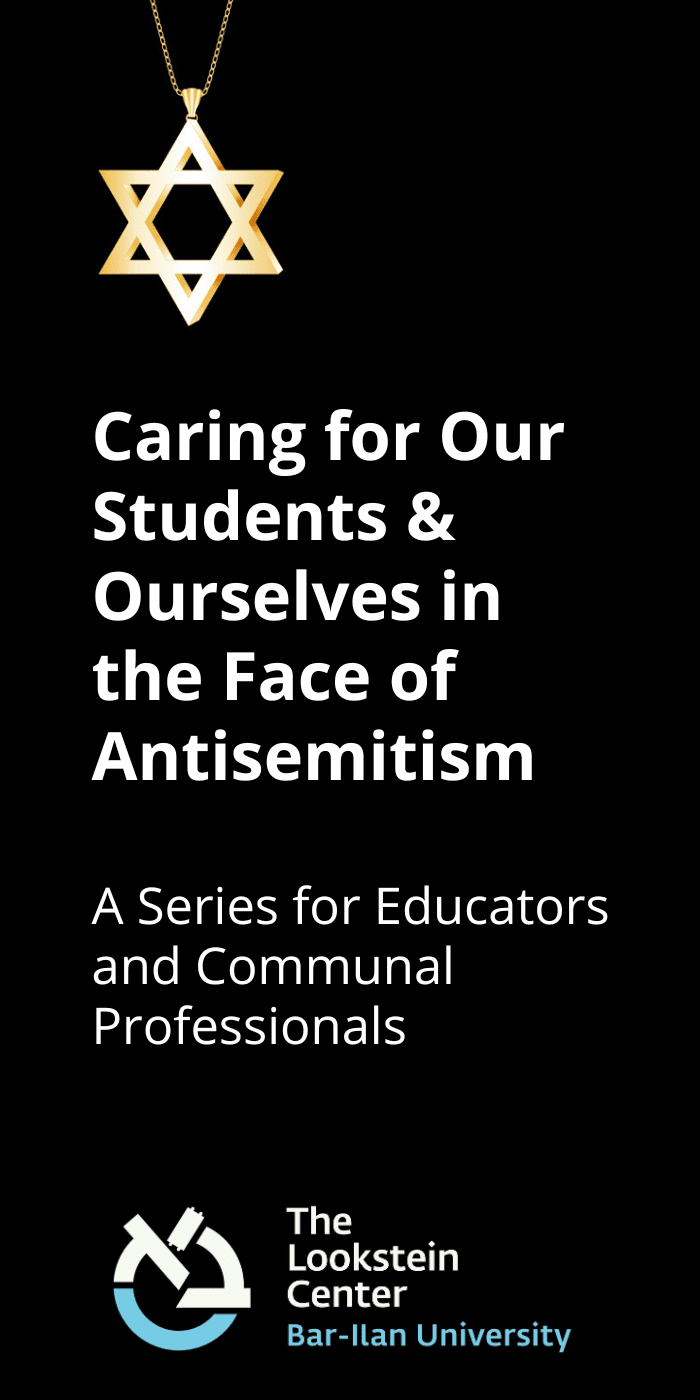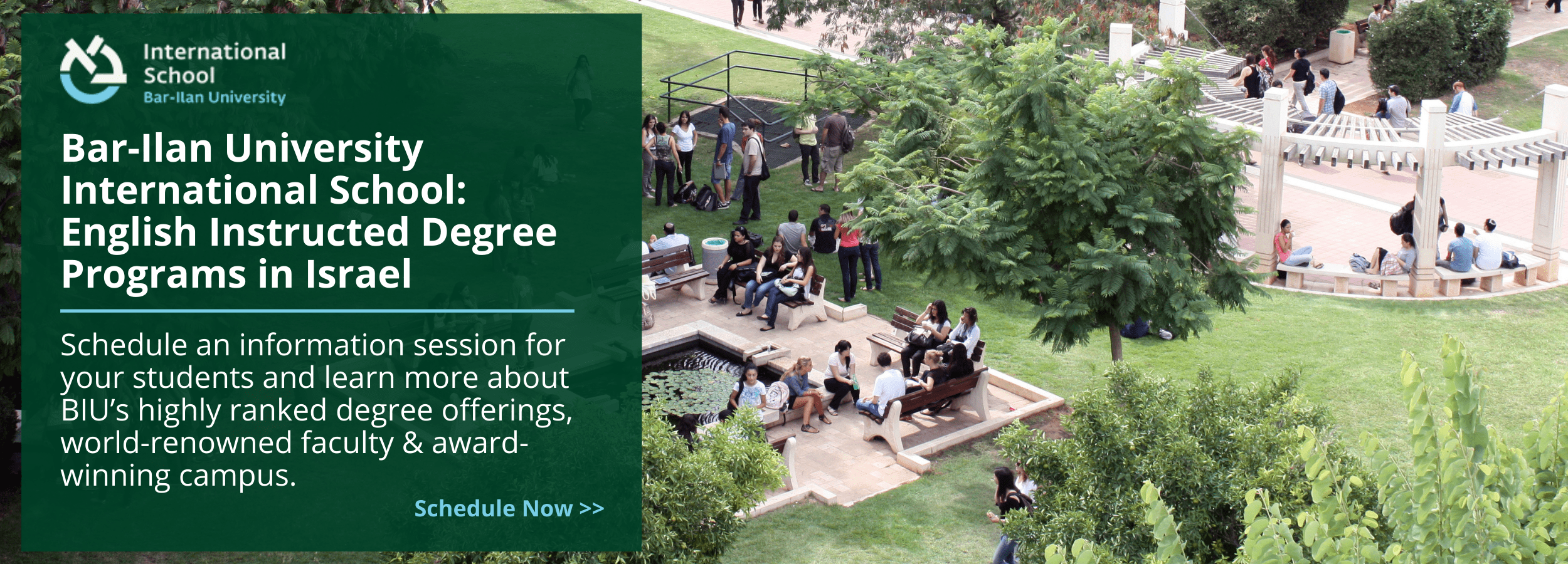Coloring Outside the Lines: The Tension of Meaning-Making in the Context of an Ancient Tradition
When my eldest child was in kindergarten, his teacher asked the class what seemed like a question with an obvious answer based on a chart that was hanging on the wall of the classroom. Most people who thought about the question would have answered in a very specific way. But my son gave a different answer. The teacher was confused by the answer since she clearly had something else in mind. However, instead of jumping in and saying that he was wrong, she took a moment to take a closer look at the chart and realized that his answer was in fact correct if you looked at things from a different perspective. In that moment, this teacher had to choose between teaching my child how to “draw within the coloring book lines” or how to “create his own coloring book.” Thankfully this master teacher chose the latter path.
The Challenge
Helping children create meaning in the context of a Jewish day school is complex. On the one hand, we have a tradition, one which we hope our children will grab hold of firmly and pass on to the next generation. But at the same time, if we expect them to continue living this beautiful tradition, children need to assimilate this tradition into their own framework of meaning—and the stronger the tradition, the greater the challenge.
Neil Postman and Charles Weingartner, in Teaching as a Subversive Activity, suggest that making meaning needs to happen with no superimposed limitations. How, as Jewish educators who value tradition, can we ever teach Judaism so that our children can truly make personal meaning of it? However broad the teacher’s ideology, Judaism has boundaries.
Providing the Context
Throughout Jewish history, our nation has lived amongst the other nations of the world. The influences of those nations have impacted language, dress, architecture, and yes, the context in which we make meaning. Meaning-making always happens within a context. As an individual reflectively tries to process new content s/he draws upon past experiences and prior knowledge. The outside influences on this individual provide a context in which s/he will experience his or her Jewish journey. New knowledge and experience are integrated into old frameworks wherein small incremental changes are made. Meaning-making is a constant and active process. When something challenges a child’s current understanding, the child must go through a process of negotiation in evaluating past assumptions. The story of Yaakov purchasing Esav’s birthright will be understood very differently when learned initially at the age of five than when revisited at the ages of fourteen or eighteen.
Different schools with varying ideologies will establish their own Jewish contextual framework from which a child draws upon when making meaning out of new experiences and being exposed to new texts, and the repeated exercise of meaning-making will acculturate the students to what the meaning-making looks like within that school’s context. All of this relies on educators, like my son’s teacher, who are open to looking beyond the expected answer and allowing each individual child’s voice to be heard and encouraged, while still being grounded in our tradition.
Role Models
Meaning-making is something that happens internally but is based upon external environmental influences. The role of the educator is to help establish a foundation upon which the structures of meaning will be built. What foundation are we laying so that a child can continue to grow and develop while maintaining a connection to our tradition? The strongest foundations are those built through connection. Individual bricks can topple over but when these bricks are connected by the mortar of relationships, they are hard to dislodge. It is not sufficient to simply lay a foundation of texts and knowledge. Rather, role models who care deeply for their students and who build strong and lasting relationships with our children, help the students tie together the ideas and information of which they try to make sense. Authentic role models who embody the school’s values implicitly set the boundaries described in the previous section, while explicitly modeling the personal exploration of meaning.
A Culture of Inquiry
As educators actively expose their students to experiences and ideas within the context of a safe and acceptable space, students will be able to openly grapple with difficult conversations. One of the most impactful teachers in my own life was a teacher who did not shy away from my “subversive” questions regarding Tanakh, but rather discussed them head on and made sure I knew that these questions were welcome in his class because they were important. A space for the discussion, a platform for sharing our thoughts and differing viewpoints, enabled us as students to contend with competing ideas and make sense of what we were experiencing. Of course, to truly create a culture of openness to questioning and exploration of individualized meaning, the modeling should extend to the entire teaching staff, not just those teaching Jewish studies.
When discussing Universal Design for Learning, David Rose and Anne Meyer say that what we should be doing in education is having “teachers support learning rather than impart knowledge; students construct knowledge rather than passively receive it.” As educators, we provide the foundation and scaffolding upon which each individual student’s meaning structure will continue to be built—and as Jewish educators, it is mission critical for providing the environment in which students can grow into young adults who deeply and authentically find their tradition meaningful. Educators can teach students how to engage with ideas that may be counter to their current mode of thinking rather than simply rejecting those ideas out-of-hand, and they can help students learn to engage in civil discourse. This will help the students learn basic skills to be able to construct and reconstruct meaning through life-long learning. It is a teacher’s responsibility to provide the space and environment that allows students to construct meaning, and it is equally the teacher’s responsibility to help their students build the strength to stand up to others when their ideas are under fire.
By creating a culture of inquiry, complete with the safety to ask hard questions and explore non-traditional meaning, we enable our students to make Judaism their own, so that each student can leave our campuses with a personal relationship with God and a foundation upon which they can then continue to build and grow throughout their lives. The teachers, as builders of that culture and the models for it, are the critical ingredient in this equation. They can be trained to do this intentionally and explicitly while serving as role models of the self-restraint necessary to ensure that the norms and standards of the community are not breached in the process.

Yehudah Potok
Yehudah Potok is Head of School at Katz Hillel Day School. He earned his B.A. from the University of Pennsylvania, an M.S. from the Azrieli Graduate School, and rabbinic ordination from Yeshivat Hamivtar. Rabbi Potok has published numerous articles and presented at conferences on organizational change and educational technology.



